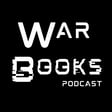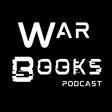
Vietnam War – Nixon & Kissinger – Carolyn Woods Eisenberg
Ep 008 - Nonfiction. My fascinating conversation about the Vietnam War with Prof. Carolyn Woods Eisenberg, author of the new book "Fire and Rain: Nixon, Kissinger, and the Wars in Southeast Asia."
Prof. Eisenberg’s book is a re-examination of Nixon and Kissinger during the Vietnam War. Our conversation touched on the origins of the war, Nixon’s shrew political maneuvering, and how the U.S. made major concession to both the Soviet Union and China.
Support local bookstores & buy Carolyn’s book here: https://bookshop.org/a/92235/9780197639061
Subscribe to the War Books podcast here:
YouTube: https://www.youtube.com/@warbookspodcast
Apple: http://bit.ly/3ZCL0du
Spotify: https://spoti.fi/3kP9scZ
Follow the show here:
Twitter: https://twitter.com/warbookspodcast
Facebook: https://www.facebook.com/warbookspodcast
Instagram: https://www.instagram.com/warbookspodcast/

